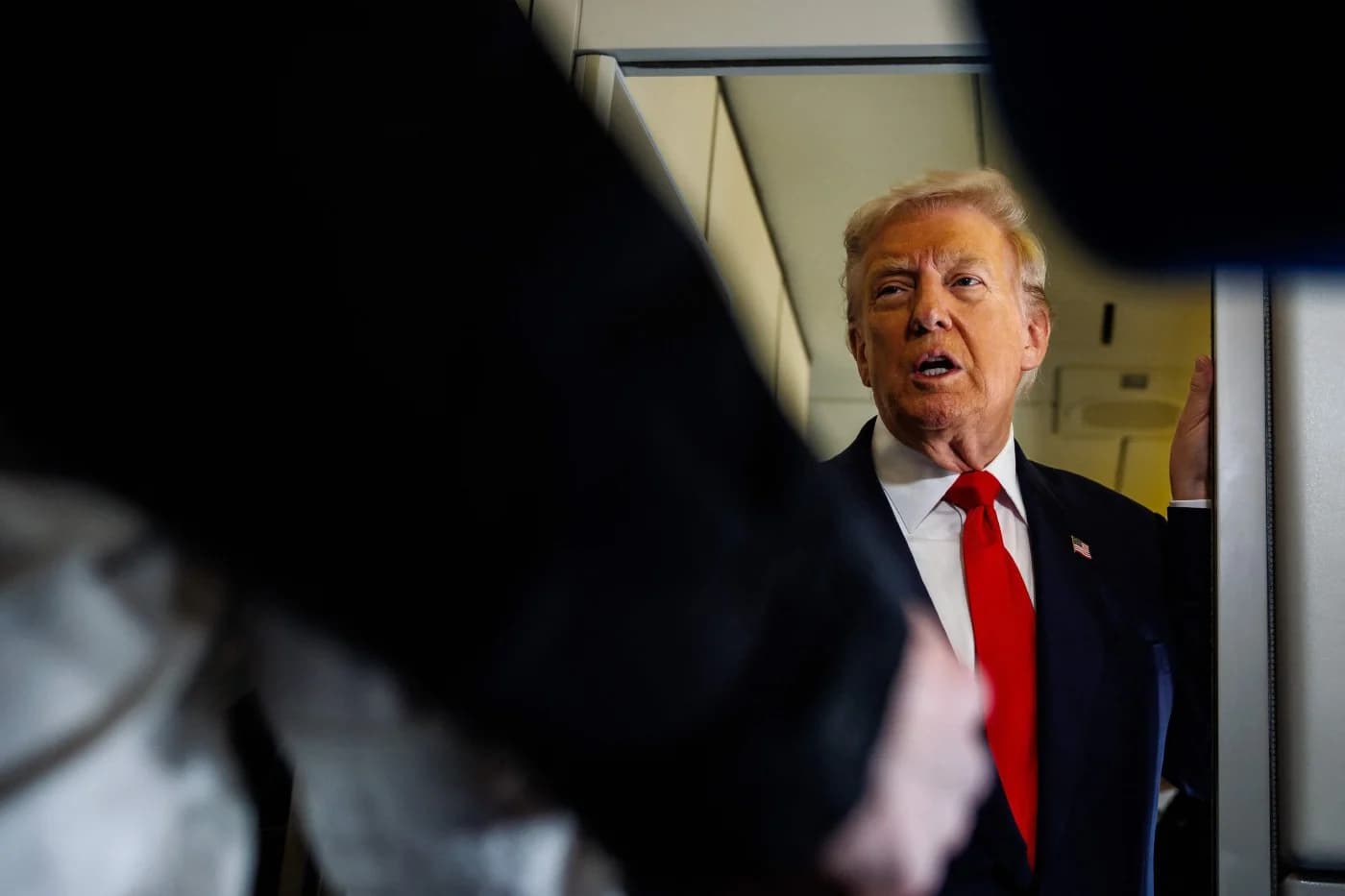We're loading the full news article for you. This includes the article content, images, author information, and related articles.
As Washington's undeclared naval campaign against alleged 'narco-terrorists' intensifies regional tensions, Kenya has been quietly strengthening its diplomatic and parliamentary ties with President Nicolás Maduro's government.

GLOBAL – Former U.S. President Donald Trump has downplayed the likelihood of a direct war with Venezuela, even as a U.S. military operation in the Caribbean and eastern Pacific has killed at least 64 people since it began in September 2025. [4, 6] In an interview with CBS News broadcast on Monday, 3 November 2025, EAT, Trump stated, "I doubt it. I don't think so," when asked about the possibility of war, but maintained that President Nicolás Maduro's government has been treating the U.S. "very badly."
The former president's comments come amid a significant U.S. naval buildup in the region that began in August 2025, ostensibly to combat drug trafficking. [5] The Trump administration has framed the lethal strikes on small vessels as a necessary front in an "armed conflict" against drug cartels, which it has designated as "narco-terrorist" organizations. [6, 12] According to U.S. officials, the targets are affiliated with groups including Venezuela's Tren de Aragua and Colombia's National Liberation Army (ELN), though the administration has not released public evidence to support these claims. [4, 9]
Since the first strike was announced by Trump on 2 September 2025, the U.S. military has conducted at least 15 strikes on 16 vessels. [4] U.S. Defense Secretary Pete Hegseth confirmed the latest strike on Saturday, 1 November 2025, stating three alleged "narco-terrorists" were killed. [7] The operation has drawn sharp criticism, with the United Nations' High Commissioner for Human Rights, Volker Türk, decrying the attacks and their mounting human cost as "unacceptable" and a form of extrajudicial killing. [7]
The U.S. actions have been vehemently condemned by regional leaders. Colombian President Gustavo Petro has accused the United States of using the strikes to "dominate" Latin America and warned Washington against any ground intervention in Venezuela, calling it a "red line." [8] Relations between the U.S. and Colombia have deteriorated sharply, with the Trump administration revoking Petro's visa in September and imposing sanctions on him in October 2025, accusing him of failing to curb drug cartels. [29, 30] Petro has dismissed the allegations as "an arbitrariness typical of an oppressive regime." [30]
In Caracas, the Maduro government has accused the U.S. of fabricating a pretext for war and attempting regime change. [7, 16] The United States does not recognize Maduro as the legitimate president following elections in 2024 that were widely deemed fraudulent by international observers. [10] The U.S. Department of State has offered a reward of up to $50 million for information leading to Maduro's arrest on charges of narco-terrorism. [15] In response to the U.S. military pressure, Venezuela has reportedly sought to bolster its military capabilities by appealing for assistance from Russia, China, and Iran. [27]
While the hemisphere faces growing instability, Kenya has maintained and actively pursued stronger diplomatic relations with Venezuela. Venezuela has operated an embassy in Nairobi for years, and the two nations have a history of cooperation in education and energy. [17] On Thursday, 10 April 2025, Kenya's National Assembly Speaker, Moses Wetang'ula, hosted the Venezuelan Ambassador, Moravia Peralta Hernandez, to discuss the formation of a Kenya-Venezuela Parliamentary Friendship Group aimed at promoting bilateral dialogue. [31] Speaker Wetang'ula stated, "Kenya's Parliament is open to building meaningful ties through parliamentary diplomacy." [31]
More recently, on Wednesday, 24 September 2025, Kenya's Cabinet Secretary for Foreign and Diaspora Affairs, Musalia Mudavadi, met with his Venezuelan counterpart, Yván Gil, where they ratified their intention to expand cooperation. [33] This diplomatic track stands in stark contrast to the U.S. policy of isolation and military pressure, positioning Nairobi as a neutral party maintaining open channels with Caracas. The ongoing engagement underscores a continuation of foreign policy independent of the escalating conflict between the U.S. and the South American nation.
The situation remains volatile. While Trump has publicly cast doubt on a full-scale war, he has refused to rule out strikes on land targets within Venezuela. [5] The deployment of advanced U.S. military assets, including the USS Gerald R. Ford aircraft carrier, to the region suggests a sustained and potentially escalating campaign, with significant implications for regional stability and global energy markets. [6, 25]
Keep the conversation in one place—threads here stay linked to the story and in the forums.
Sign in to start a discussion
Start a conversation about this story and keep it linked here.
Other hot threads
E-sports and Gaming Community in Kenya
Active 9 months ago
The Role of Technology in Modern Agriculture (AgriTech)
Active 9 months ago
Popular Recreational Activities Across Counties
Active 9 months ago
Investing in Youth Sports Development Programs
Active 9 months ago